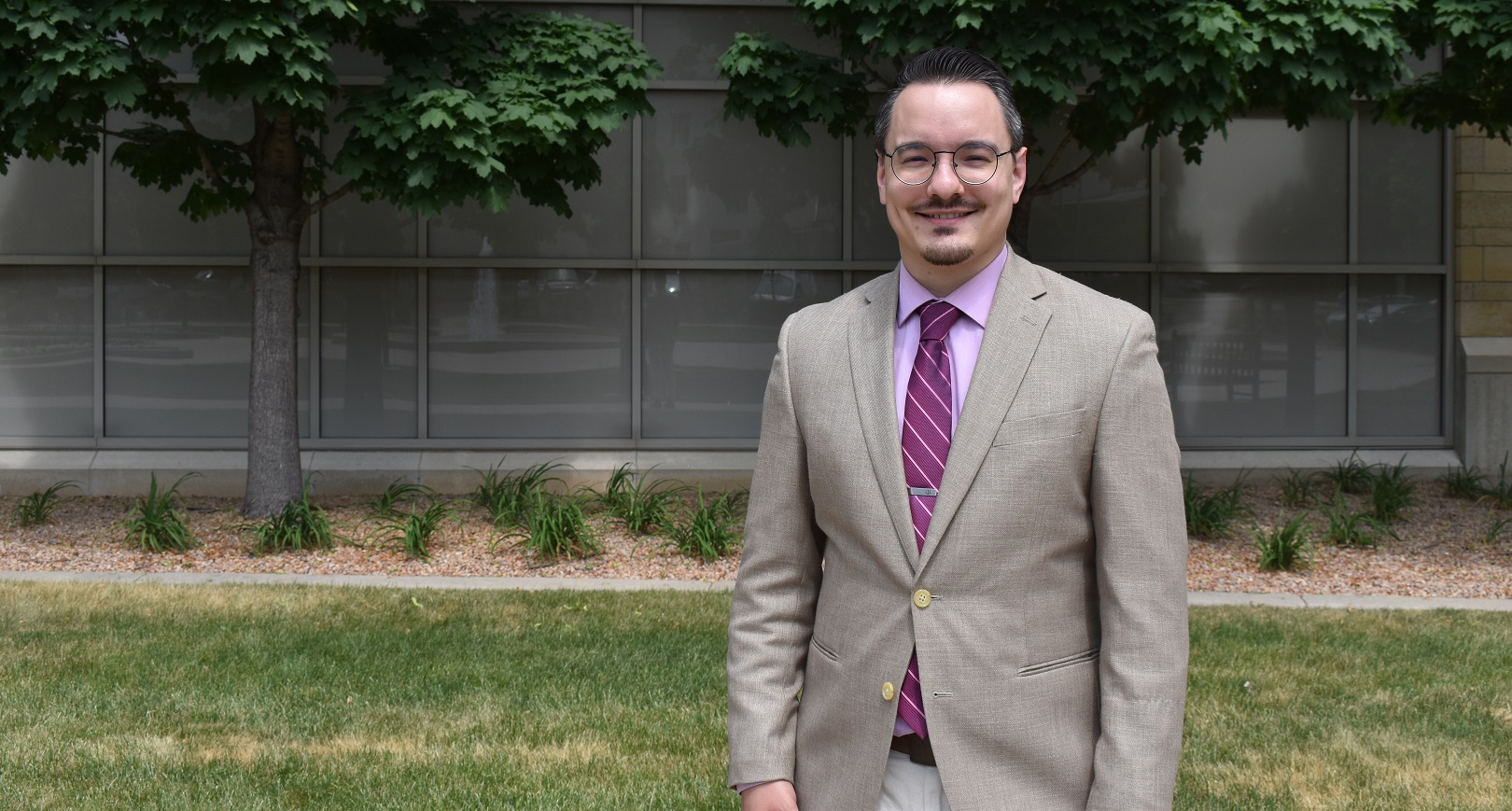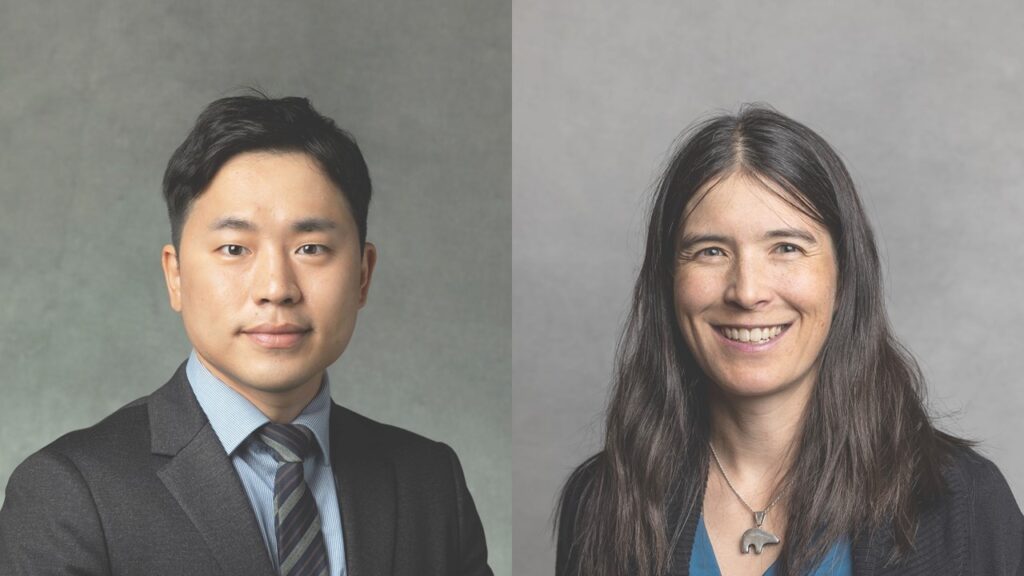Recent St. Thomas law school graduate Trey Perez ’23 J.D. believes that changes to federal intellectual property (IP) laws and the Indian Arts and Crafts Act could better protect and boost the economic development of Native American tribes and Indigenous artists. He explains why in a paper that was published by the Seattle University School of Law American Indian Law Journal in April.
Perez wrote the paper to fulfill his upper-level writing requirement toward graduation, but his professors, Reid LeBeau and Thomas Berg, felt his ideas warranted a larger audience and encouraged him to submit the paper to a law journal.
“I investigated Native American poverty in undergrad for my capstone project and felt that I could leverage some of that background knowledge into my upper-level writing topic at St. Thomas,” said Perez, who has focused on IP law while earning his Juris Doctor at St. Thomas.
Some Native tribes in the U.S. have established revenue streams, such as through casinos and gaming, however, others do not and experience high rates of poverty. Perez proposes that changes to federal trademark, copyright and patent law could provide additional income for all tribes, especially those that are economically disadvantaged.
“… tribes possess little power to police their tribal names, which limits their ability to prevent others from using their names on products,” Perez writes in the paper as an example of an IP issue that can impact tribes financially.
He also advocates for changes to the Indian Arts and Crafts Act, specifically its definition of “Indian” that includes the component as having tribal membership. Currently, the Indian Arts and Crafts Board, which was established by the act, is responsible for, among other roles, designating who can call themselves an “Indian artisan.” Perez says the board should have the ability to grant this classification to those who meet a set of requirements, but not be contingent on membership in a tribe, due to the wide-ranging tribal membership standards across the country.
Perez’s interest in Native American culture and history goes back even farther than his time as an undergraduate student. He says it began at a young age through his grandmother.
“My grandma took my cousins and me on trips around Minnesota and the Dakotas to see various Native American historical sites,” he said. “She was deeply interested in their cultural history, and that rubbed off on me.”
Now that his paper is published, Perez hopes it will contribute to a larger conversation about poverty and the economic disparities among tribes.
“I’d love if the article contributed in any way to how lawmakers address Native American poverty at the state or federal levels, but if not, I hope it at least gets people thinking about alternatives to solving the issue,” he said.
Perez is currently a law clerk at The Spence Law Firm in Minneapolis, which represents clients in a variety of IP matters, while he studies for the bar exam.







